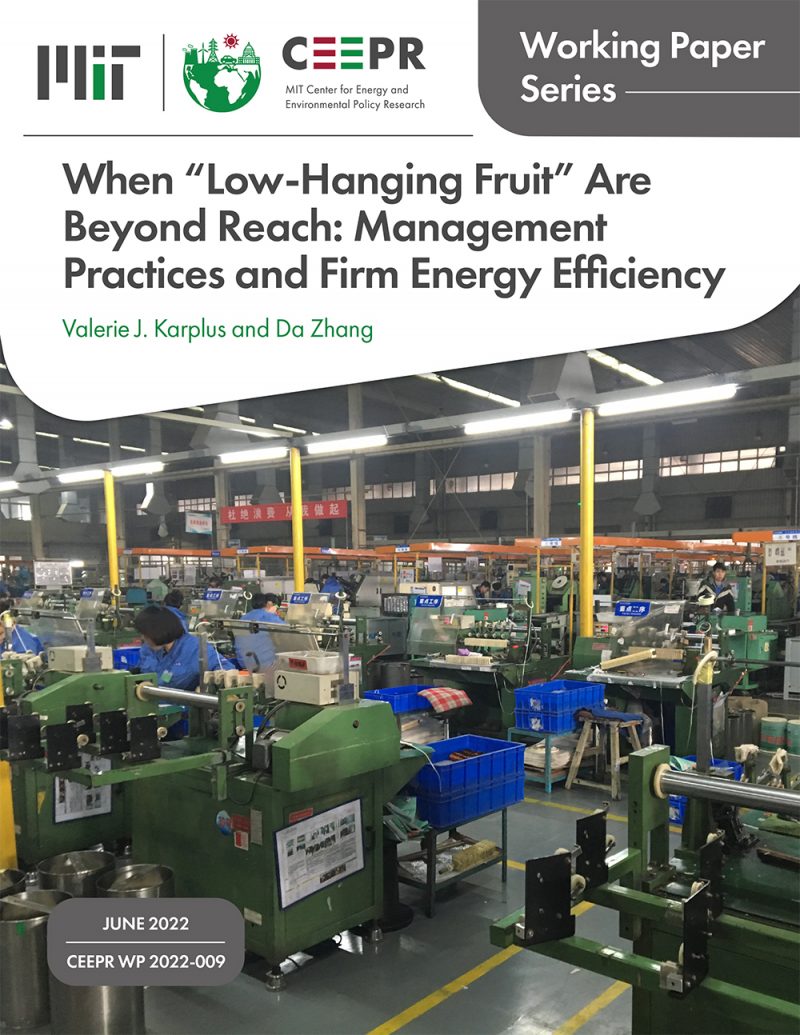When “Low-Hanging Fruit” Are Beyond Reach: Management Practices and Firm Energy Efficiency
Valerie J. Karplus and Da Zhang
June 2022
We study whether structured management practices affect the uptake and impact of industrial energy efficiency measures, which are widely considered important for mitigating climate change. In a randomized experiment that provides small- and medium-sized metal machining firms with tailored recommendations to improve energy efficiency, we find that the likelihood of recommendation adoption increases with a firm’s management practice score. However, the intervention’s main effect—a reduction in the unit cost of electricity—is larger in firms with less developed structured practices. We find that this effect can be traced to managers’ suboptimal selection of transformer-related parameters at baseline, which resulted in higher electricity costs. This “energy management gap” is most strongly associated with low monitoring, target-setting, and incentive practice scores. Our findings suggest that structured management practices may help firms absorb new ideas that are expected to reduce physical energy use and greenhouse gas emissions, while tailoring interventions to address management practice gaps in low-scoring firms may unlock opportunities to save energy cost. However, impact on greenhouse gas emissions may be limited.
Keywords: management, energy efficiency, electricity, randomized controlled trial, China



